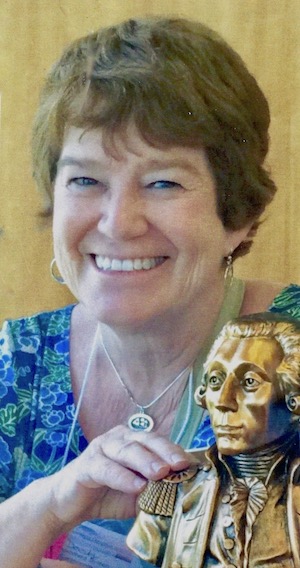 I have been re-reading The Riddle of Penncroft Farm, my historical novel about the American Revolution for young readers, in order to write "bubbles", i.e. author insights, about it on my Bublish page.
I have been re-reading The Riddle of Penncroft Farm, my historical novel about the American Revolution for young readers, in order to write "bubbles", i.e. author insights, about it on my Bublish page.I am happy to report that it is still quite a good story. (I feel I can say that because I wrote it so long ago it seems as if somebody else is the author.) It is really two stories, however: one set in "modern" times and the other set during the American Revolution.
As the School Library Journal said about Riddle:
"This is an entertaining mystery involving a missing will that could stand alone, but combined with Geordie's enthralling tales of Valley Forge during the American Revolution, Jensen gives readers two terrific stories that are intertwined nicely and come together in a satisfying conclusion."
As I have a new historical novel for kids (middle graders and young adults) coming out in the spring, (A Buss From Lafayette), I have been thinking lately about what historical fiction is, exactly. There are a number of definitions out there, as this Wikipedia article shows:
When I read these definitions, I realized that it has been more than 25 years since Riddle was published, and more than 30 years since I started to write it. That could mean, according to the last definition, that the "modern" part of the book might be regarded as "historical" now. (Although it all gets a bit convoluted because obviously it was not set 25 years before it was written.) But young readers of today could certainly read the "modern" part of my story as if it were also "historical."
The "modern" setting of Riddle took place in the 1980s, which in some ways is as distant from today as the American Revolution. No cell phones. No internet. No e-mail. No streaming videos. No texting. No video games. (Pong doesn't count.)
Let's face it, in a way, America has been through another Revolution in the last 25 years. So my book is actually portraying TWO eras that are well and truly "bygone".
Besides, since thinking of it this way would put my book in the same category as Jane Austen's, I am more than happy to do so!


No comments:
Post a Comment